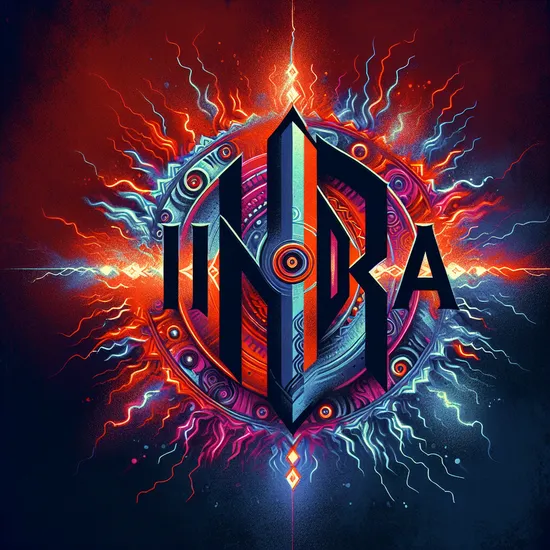Indra - Discover the Meaning, Origin, and Horizon of this Powerful Name
Meaning of the Name Indra
The name Indra has its roots in ancient mythology and carries connotations of power and leadership. Personifying as a deity in several cultures, it translates to king of the gods or lord of the skies, showcasing its association with strength and the heavens. This timeless name invokes the imagery of prowess and authority across ages.
Find more names related to the name Indra.
Warrior,
Leader,
Strong,
Victory,
Indian,
Sanskrit,
Origin of the Name Indra
India serves as the historical anchor for the name Indra, with its mythology deeply entrenched in the Sanskrit language. In ancient texts, Indra is revered as a mighty god, leader of the pantheon within Hindu traditions. The name traveled widely across regions, symbolizing divine rule and atmospheric control, marking its place in other cultures over time.
Gender Association of the Name Indra
The name Indra is largely gender-neutral. Although historically masculine, particularly in India and Nepal, it has found acceptance as a unisex name globally. Countries like the United States and Australia embrace its flexible gender identity. Individuals with the name often embody both male and female associations, celebrating its universality.
Popularity of the Name Indra
The name Indra has fluctuated in popularity, often ranked moderately in baby name charts, especially within India and Southeast Asia. Its exotic flair has led to emerging interest in Europe and North America. Throughout history, the name's divine connections have contributed to its enduring appeal across cultures and generations.
Global Usage of the Name Indra
In India and Nepal, Indra remains a common name, frequently used in cultural contexts. Its pronunciation may vary slightly in Western countries, where it's appreciated for its exotic and mythic resonance. Southeast Asian communities also honor it as part of their heritage, reflecting its spread from its point of origin to a worldwide audience.
| Global Distribution and Gender Ratio of the Name Indra |
| Country |
Usage % |
Female % |
Male % |
| ID |
88.24% |
4.4% |
95.6% |
| BE |
2.67% |
95.36% |
4.64% |
| US |
1.65% |
19.17% |
80.83% |
| MY |
1.2% |
10.34% |
89.66% |
| MX |
1.09% |
98.73% |
1.27% |
Analysis of gender and popularity across nations is sourced from
Gender API data.
Characteristic Features of People Named Indra
- Charismatic : Individuals often exude charm and confidence.
- Strong Leadership : Many exhibit natural leadership qualities, directing others with ease.
- Courageous : Known for bravery and a willingness to face challenges head-on.
- Innovative : Often creative thinkers who enjoy innovating and problem-solving.
- Loyal : Possess a deep sense of loyalty to family and friends.
Common Career Paths for People Named Indra
- Leadership Roles : Often found in managerial or executive positions guiding teams.
- Creative Arts : Many thrive in artistic domains such as writing, music, or design.
- Technology and Innovation : Drawn to cutting-edge fields and tech development.
- Education and Teaching : Pursue roles where they can share knowledge and empower others.
- Public Service : Inclined towards roles in governance or community service.
Unique and Interesting Characteristics of the Name Indra
- Mythological Roots : Named after the king of gods in Hindu mythology, cementing divine reverence.
- Cultural Legacy : Appears in various epics and scholarly works as a symbol of power.
- Diverse Usage : Crosses cultural barriers, used in regions from Asia to Europe.
- Modern Adaptations : Highlighted in films and literature, reflective of its timeless appeal.
- Notable Figures : Admired by celebrities in various arenas who bear the name.
Famous People Named Indra
- Indra Nooyi: Noted for her leadership as a former CEO of PepsiCo.
- Indra Lesmana: Celebrated Indonesian jazz musician and composer.
- Indra Sinha: Renowned British writer with acclaimed works.
Similar Names
-
Ishvara: Instantly reminiscent of divine names, Ishvara signifies a supreme being.
-
Vishnu: Shares a godly association, commonly referring to the preserver deity in Hindu beliefs.
-
Ganesha: Denotes the lord of beginnings and remover of obstacles in Indian mythology.
-
Shiva: Respected in cultural lore as the transformer and regenerator deity.
-
Kiran: Connects through its strength with an underlying ray of light meaning.
-
Surya: Known for sun god attributes, infusing warmth and life.
-
Lakshmi: Brings to mind wealth and prosperity aspects from goddess lore.
-
Durga: Represents strength and protective qualities in female form.
-
Ram: Common in Indian epics, expressing heroism and virtue.
-
Parvati: Embodies fertility, love, and devotion attributes of motherhood.
